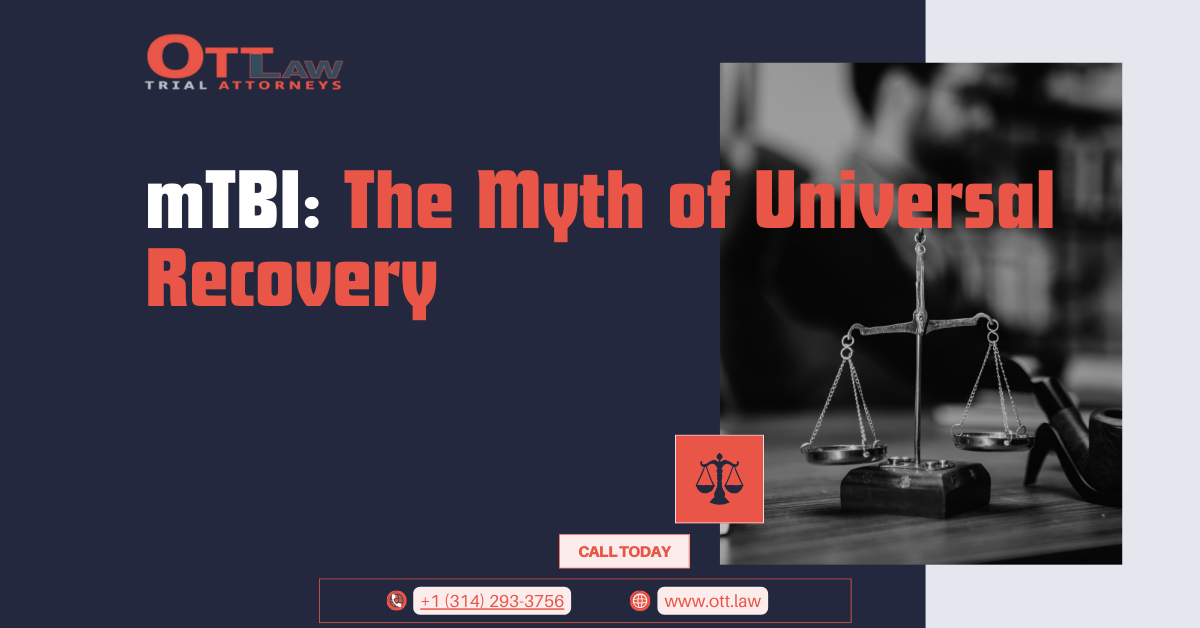Mild Traumatic Brain Injury (mTBI) is a subject rife with misconceptions, chief among them the assertion that everyone recovers fully from such an injury. This popular belief perpetuated by some DMEs (Designated Medical Examiners) is misleading and not grounded in comprehensive scientific evidence.
The Myth of Universal Recovery
A commonly floated defense is the premise that since most individuals with an mTBI recover, every individual must recover. Such a defense conveniently overlooks significant research indicating that between 6-18 months post-injury, approximately 25% of individuals with mTBI exhibit partial functional disability1.
Dr. Michael Freeman provides an illuminating analogy. Comparing the defense’s argument to witnessing a plane crash where everyone perished and asserting that since most plane rides are safe, these individuals couldn’t possibly have died in this crash.
Furthermore, the defense argument often builds upon generalized studies. It’s important to question the specifics: Did the study participants mirror your client’s psychiatric and physical history? Were they exposed to the same force of impact? Generalizing the outcomes from such studies to all mTBI patients is inherently flawed.
The “Miserable Minority”
While the term “miserable minority”2 may sound pejorative, it captures the plight of those who suffer long-term consequences from an mTBI. These patients can be particularly challenging for their spouses or partners, as the mTBI patient might seem normal to outsiders but exhibit problematic behaviors in intimate settings.
In a 2013 study by Ahman et al. published in the Medical Journal, it was revealed that long-term mTBI consequences persisted for nearly 50% of patients even 11 years post-injury3.
The Ramifications of Misdiagnosis
There’s a concerning logic emerging from some defense arguments: If a patient isn’t better now, their TBI wasn’t mild, to begin with. Such a viewpoint is inherently flawed, advocating for a diagnosis at the time of injury – when the least information is available.
Using this logic, Natasha Richardson, who initially showed no signs of injury but later tragically succumbed, only had a mild TBI. Such a perspective suggests we should merely base our judgment on the patient’s immediate post-accident condition, ignoring any progression or deterioration.
Moreover, a study highlighted that mTBI victims have increased risks for various psychiatric disorders4. Hence, the claim that mTBI victims should be “merry” after their injury is not only baseless but also profoundly insensitive.
Conclusion
Mild Traumatic Brain Injury, despite its name, can have severe and long-lasting consequences. Generalizing recovery rates and outcomes does a disservice to those suffering from the unique complexities of brain injuries. It’s essential to consider every case on its merit and not fall for generic defense claims.
For professional legal guidance on traumatic brain injuries or related concerns, reach out to the OTT Law Firm.
- Address: 3544 Oxford Ave, Maplewood, MO 63143, United States
- Phone: +13142933756
- Email: joe@ott.law
- Website: OTT Law
References:
- Research on long-term effects of mTBI.
- Reference to mTBI long-term sufferers.
- Medical Journal article by Ahman et al.
- Study on psychiatric disorders post mTBI.

